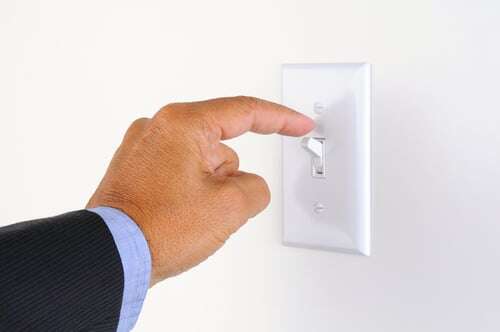 Many Chico area residents have heard of the Grinch who stole Christmas. What they don't know is the identity of the Grinch who “stole” the tax credits on insulation, windows, doors, skylights and roofs.
Many Chico area residents have heard of the Grinch who stole Christmas. What they don't know is the identity of the Grinch who “stole” the tax credits on insulation, windows, doors, skylights and roofs.
Experts in Your Home doesn't know, either, though it's obviously someone affiliated with a high-level federal agency. We do know that this is one of those times where looking at the proverbial glass as half-full helps since 2017 tax credits are still available on some solar projects.
It's difficult to argue that saving some money is better than saving none at all. So allow the Experts to explain how the IRS-U.S. Department of Energy program works.
The Solar Tax Credit, in a Nutshell
Solar energy systems are the only energy-saving and renewable energy sources that are still eligible for federal energy tax credits. They now stand alone in what was once a fairly crowded field of home improvements.
Known as the “residential energy efficient property credit,” the solar tax credit:
- Applies to 30 percent of the cost of solar hot water heaters and solar panels.
- Applies to the cost of installation. This may not seem significant, but it's worth noting that previous energy-efficient tax credits excluded the cost of installing insulation, windows, doors, skylights and roofs.
- Carries no dollar limit.
- Pertains to homes only in the United States. And the home does not have to be the taxpayer's primary residence.
- Pertains to both existing homes and homes that are under construction.
Claim Your (Dwindling) Credit
You can claim your credit by filing IRS form 5695 with your 2017 taxes. (Note that at the end of 2017, only “draft” copies of this form were available. It is unknown when the IRS will make a final copy available.) You will also need to include the manufacturer's certification statement and your receipts with the form.
While significant at 30 percent, the solar tax credit will be gradually reduced over the next few years. It will remain at 30 percent through December 31, 2019 before it is reduced to 26 percent on December 31, 2020 and then to 22 percent on December 31, 2021.
Learn More about the Tax Credit for a Solar Water Heater
Solar water heaters rely on the sun's thermal energy to heat water. The IRS extends a tax credit on heaters as long as:
- At least half of the energy generated by the "qualifying property" comes from the sun.
- The system is certified by the Solar Rating and Certification Corporation (SRCC) or a comparable entity endorsed by the government of the state in which the property is installed.
The tax credit is not available for expenses related to swimming pools or hot tubs. The heated water must be used in the home.
Learn More about the Tax Credit for Solar Panels
Also known as photovoltaic systems, solar panels capture light from the sun and convert it into electricity. The IRS extends a tax credit on these panels provided that:
- The panels provide electricity for a home.
- The panels meet all applicable fire and electrical code requirements.
Earlier Credits on Home Improvements Were Nice While they Lasted
While it's possible that the solar tax credit could be restored to its current level, this is probably more wishful thinking than grounded thinking. In fact, many observers agree that it will meet the fate of tax credits that expired at the end of 2016. Those credits covered the following home improvements that were installed prior to January 1, 2017:
- Insulation materials and systems designed to reduce a home's heat loss or gain
- Exterior doors and windows, including skylights, that met Energy Star program requirements.
- Pigmented metal roofs designed to reduce heat gain and asphalt roofs certified by Energy Star.
Don't hesitate to call Experts in Your Home if you have questions about energy efficient home improvements, and of course speak with your favorite tax professional for full details on claiming the solar credit. We hope you can take advantage of it before a “Grinch” makes it a thing of another Christmas past.








